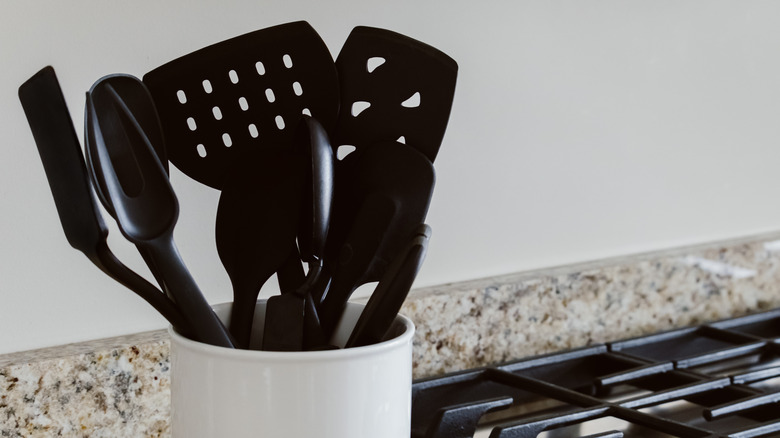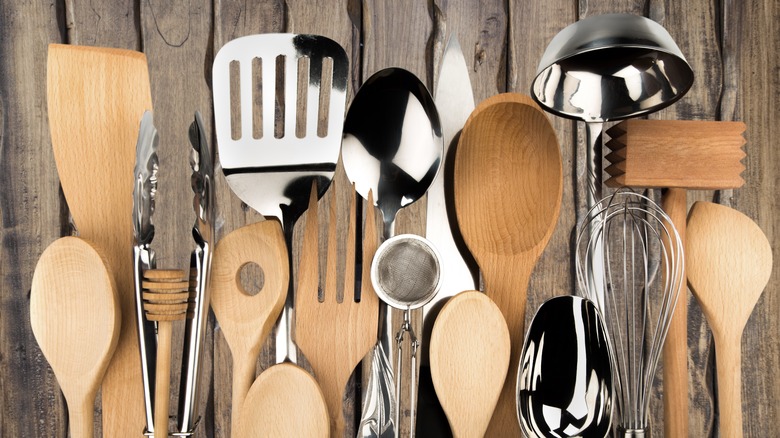Think Twice Before Choosing Black Kitchen Utensils. Here's Why
It turns out your chic black utensil set might be whipping up more than just sauce in your kitchen. While they could be a beautiful addition to your monochromatic culinary collection, a recent study published in Chemosphere found that the majority of black plastic household items, from toys to kitchen utensils, contain large quantities of brominated flame retardants (BFRs). According to the research, using black kitchen utensils could lead to more exposure to these BFRs daily as the chemicals can leach into your food. Some of these BFRs are known to negatively affect the nervous, endocrine, and reproductive human systems, as well as increase the risk of cancer.
Now, please note that utensil manufacturers aren't likely intentionally including these harmful chemicals in their products. The problem stems from the fact that black food-grade plastics cannot be sorted at most recycling facilities since the optical sorting system uses infrared technology that cannot 'see' black plastics, as their color (carbon black) absorbs infrared light. Because of this, tons of black plastics end up in landfills even after being sent to recycling. This increases the demand for black base material for recycled plastic, so black electronic waste (e-waste) takes its place. Plastics used in electronics usually have flame retardants in their composition to prevent or slow the spread of fire. But unfortunately, when plastics from electronics are recycled, they are often melted along with food-grade plastics to make other items, including kitchen utensils, unwittingly introducing BFRs to our kitchens.
Alternative kitchen utensils that are safer to use
Wooden utensils are a natural and environmentally friendly option that is non-toxic. They don't scrape your pots or leach chemicals into your meals. However, you should always air them out to prevent mold and ensure you disinfect your wooden kitchen utensils properly. Stainless steel is also a great option because it is made mostly of chromium, which is non-reactive no matter the temperature. For storage, instead of plastics, go for glass or stainless steel containers to prevent leaching into your sauces and stews. Just ensure that, before you get your next utensils from your favorite place to buy kitchenware, you do your research to know if they are safe and non-toxic.
With new wooden or stainless steel spoons and spatulas taking their place, the best thing to do with your old black utensils is to find a way to repurpose them in your home, ensuring they don't come in contact with your food. Otherwise, you should throw them away to avoid contributing to the problem. For example, our master gardener tells us not to throw out plastic containers but to repurpose them in the garden. You can turn your black rolling pin into a towel hanger, syrup dispenser into a soap dispenser, or a spatula or plastic spoon into a garden marker. Try to have fun converting your dangerous black utensils into whimsical, upcycled items in your home.

